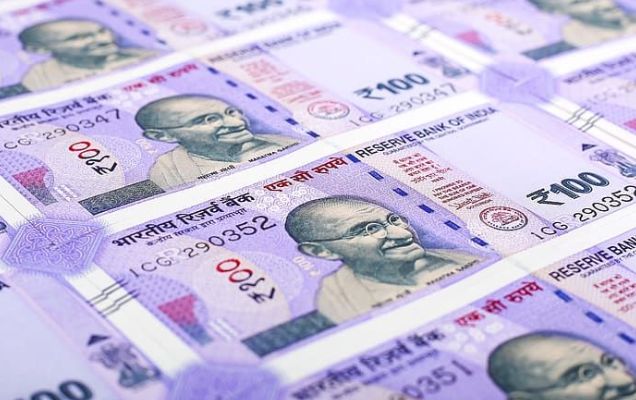In a socio-political landscape where memory functions as both a strategic asset and a source of trauma, the National Herald case epitomizes the intersection of political authority, real estate transactions, and historical legacy. What initially appeared as the modest decline of a newspaper has spiralled into one of India’s most intricate legal sagas, revealing the complex dynamics of dynastic privilege and challenging the boundaries of institutional accountability. This narrative transcends mere allegations of financial misconduct; it frames a broader inquiry into the use of legacy as leverage and the manipulation of political history through the lens of real property transactions.
At the centre of this unfolding storm is a transaction so intricately simple that it seems poetic, if it weren’t so explosive. In 2010, a private company named Young Indian Pvt. Ltd. was quietly incorporated. Its shareholders, Sonia Gandhi and Rahul Gandhi, are both members of a political lineage tracing back to Jawaharlal Nehru, India’s first Prime Minister. A year later, this modest company acquired 99% of Associated Journals Limited (AJL), the publisher of the defunct yet once-revered National Herald newspaper. On paper, the deal involved a loan of ₹90.25 crores that the Congress party had extended to AJL over several years, with Young Indian stepping in to “settle” this debt for ₹50 lakh. Essentially, the debt was erased, along with the rights to AJL’s considerable real estate portfolio, assets that, by conservative estimates, exceed ₹2,000 crore in value.
This transaction initially skirted public scrutiny, as is often the case in the Indian political arena. However, in 2012, Dr. Subramanian Swamy, a maverick economist and Bharatiya Janata Party (BJP) parliamentarian, lodged a complaint with a Delhi court that brought the arrangement to light. Swamy asserted that the Gandhis had engaged in a “backdoor takeover” of AJL, alleging criminal breach of trust and financial fraud. While the claim was initially dismissed as politically motivated, it gradually gathered legal traction and public scrutiny.
In 2015, the Enforcement Directorate (ED), India’s top investigative agency for financial crime, intervened. A case was registered under the Prevention of Money Laundering Act, initiating a slow yet methodical bureaucratic process with mounting repercussions. The ED asserted that AJL’s properties, originally allotted for journalistic and charitable purposes, were being commercially exploited, with tenants paying rent and private usage, violating the conditions under which they were granted. Most damning, according to ED filings, was the finding that these properties were no longer used for publishing or any media-related activities. The flagship asset, Herald House in Delhi’s Bahadur Shah Zafar Marg, an iconic building that once resonated with the voices of India’s freedom struggle, was now, in the ED’s view, a commercial asset generating income unrelated to journalism.
Defending the paper’s founding ethos, Sonia Gandhi stated, “The National Herald was founded by my grandfather-in-law, Jawaharlal Nehru, to give voice to the freedom movement. Its legacy is being tarnished by baseless allegations.” She further emphasized the party’s faith in the justice system, adding, “We have full faith in the judicial process and will continue to fight these politically motivated charges.”
The investigation gained momentum in 2022 when Sonia Gandhi, Rahul Gandhi, and Congress treasurer Pawan Bansal were summoned for extensive questioning, which the Congress party labelled as “political persecution.” Supporters rallied outside the ED’s offices, press briefs turned into courtroom counterattacks, and the narrative emerged of a government motivated by vendetta trying to dismantle the opposition. Yet, throughout it all, one fact remained unchallenged. AJL’s ownership had indeed transferred to Young Indian, which was owned by the Congress party’s highest leadership.
Rahul Gandhi, speaking to reporters after being questioned by the ED, called the investigation a deliberate political strategy: “This is a clear case of political vendetta. The government is misusing agencies to target us.” Addressing party supporters, he doubled down, saying, “We are not afraid. We will stand firm and continue to speak the truth.”
In April 2025, the story took a consequential turn. After nearly a decade of legal maneuvers, the ED sought to seize assets worth over ₹700 crore, including the prestigious Herald House in Delhi, AJL’s building in Mumbai’s Bandra East, and another in Lucknow. Notices were issued to tenants occupying these buildings, instructing them to deposit rent directly with the ED, thereby formalizing the state’s claim over the properties and cutting off financial inflows to AJL or its proxies. The agency, previously criticized for its selective enforcement, made its boldest statement in years by staking a claim to physical properties that once symbolized the moral capital of a political party.
The economic implications of the ED’s decision to seize assets worth ₹661 crore from AJL are significant. These properties, situated in prime locations across Delhi, Mumbai, and Lucknow, had previously generated substantial rental incomes. With the ED’s action, tenants have been instructed to direct their rent payments to the agency, effectively cutting off AJL’s revenue stream. This jeopardizes AJL’s financial stability and raises concerns among tenants about the legality and security of their leases. Furthermore, the seizure sets a precedent affecting how political entities handle and utilize real estate assets, potentially prompting a re-evaluation of property holdings by similar organizations.
The legal saga surrounding the National Herald case has been extensive. It began in 2012 when BJP leader Subramanian Swamy filed a case alleging financial misconduct in the transfer of AJL’s assets to Young Indian Pvt Ltd, a company controlled by Sonia and Rahul Gandhi. In 2015, the Delhi High Court acknowledged substantial evidence of criminal misappropriation and breach of trust, leading to summons for the Gandhis and other Congress leaders. Appeals to the Supreme Court allowed the proceedings to continue, reaffirming the necessity of further investigations. As of April 2025, both the Delhi High Court and the Supreme Court upheld the ED’s actions regarding the asset seizures, solidifying the legal standing of the case.
Dr. Subhash Kashyap, former Secretary-General of the Lok Sabha and constitutional expert, emphasized, “This case highlights the critical need for transparency in financial dealings, especially involving political entities. The courts have highlighted the importance of comprehensive investigations to uphold the rule of law.”
The Enforcement Directorate has asserted that its investigation “conclusively revealed” that top Congress leaders, Sonia Gandhi and Rahul Gandhi, acquired properties at a fraction of their market value through a complex financial arrangement involving Young Indian Pvt. Ltd. and Associated Journals Limited. The agency has alleged that this scheme has resulted in the laundering of proceeds amounting to ₹988 crore. In response, the Congress party has dismissed these allegations as politically motivated. Rahul Gandhi has characterized the case as a “political vendetta” orchestrated by the ruling party to tarnish the reputation of the Congress leadership. Sonia Gandhi has maintained that the transactions were transparent and aimed at reviving the National Herald newspaper, emphasizing that there was no personal gain involved. The party has reiterated its confidence in the judicial process and expressed its intention to contest the ED’s actions through appropriate legal channels.
Unsurprisingly, the Congress party decried the move as an assault on democracy. “This is institutional warfare,” said senior leader Jairam Ramesh in an impromptu press briefing. “They are targeting our past to erase our future.” Legal appeals have been launched, and the Supreme Court is expected to hear a series of related petitions later this year. However, even within the Congress ranks, murmurs of discomfort have begun to surface about the substance of the case. For decades, the Nehru-Gandhi family has been the emotional and ideological core of the Congress party. The National Herald, launched as a voice for the marginalized, now stands at the centre of a complex narrative involving power, legacy, and accountability.
The broader implications of the National Herald case for the Congress party are both structural and symbolic. As the party struggles to regain its footing amid electoral losses and the rise of the BJP, the legal challenges faced by its top leaders cast a long shadow over its credibility and internal cohesion. This case has undermined the party’s ability to present itself as a moral alternative to the ruling government. Additionally, it reinforces a narrative the BJP has been quick to promote: that the Congress is tied to a single family, blurring the lines between private interests and public duty. Regardless of whether the courts ultimately find any criminal wrongdoing, the damaging optics of asset seizures and courtroom appearances are significant in a political landscape increasingly influenced by perception over precedent.
Public sentiment toward the Gandhi family has become more complicated in light of these allegations. While a section of the Congress base perceives the investigations as politically motivated harassment, there’s a growing national weariness with dynastic politics. This legal case has become a concrete focal point for longstanding concerns surrounding entitlement, opacity, and privilege. To safeguard its assets and counter the ED’s actions, the Congress is likely to adopt a multi-faceted legal strategy, challenging the legitimacy of the seizure orders, scrutinizing the application of the Prevention of Money Laundering Act, and possibly invoking constitutional protections related to political freedom and institutional overreach. However, these efforts will unfold within a legal system increasingly inclined toward executive enforcement, making the outcome as much a political trial as a judicial one.
The views and opinions expressed here belong solely to the author and do not reflect the views of BlueKraft Digital Foundation.







